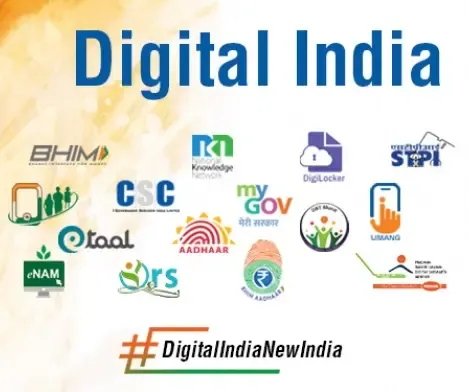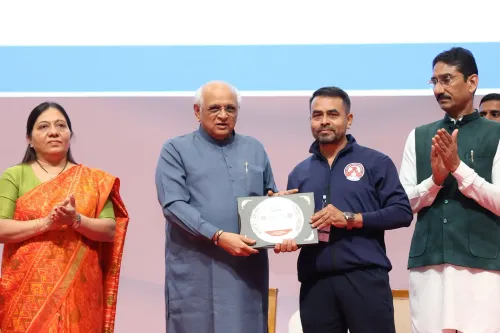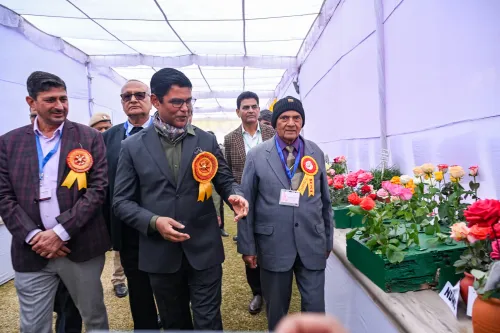Over 1.3834 Billion Aadhaar IDs Created; DigiLocker Surpasses 370 Million Users: Government

New Delhi, Dec 8 (NationPress) India's digital infrastructure has experienced a remarkable transformation in recent years, with the generation of 1.3834 billion Aadhaar numbers, as announced by the government on Sunday.
DigiLocker, a platform dedicated to digital document verification, has now accumulated 776 crore documents and caters to over 370.46 million users.
Digital Infrastructure for Knowledge Sharing (DIKSHA), recognized as the world’s most extensive education platform, has facilitated 556.37 crore learning sessions and achieved 17.95 crore course enrollments along with 14.37 crore course completions, according to government data.
According to the Ministry of Information and Broadcasting, "With a rapidly expanding digital economy, fueled by advancements in cloud computing, artificial intelligence (AI), machine learning (ML), and digital governance, India’s infrastructure is consistently evolving to satisfy the increasing demands of both public and private sectors."
After achieving a record high of 16.58 billion transactions and a transaction value of Rs 23.50 lakh crore in October, UPI transactions in November reached 15.48 billion, marking a 38% year-on-year growth with a total value of Rs 21.55 lakh crore (24% YoY growth).
The monthly number of UPI transactions could potentially reach 25 billion by the end of 2025.
A central element of India’s digital infrastructure is the advancement and expansion of data centres.
India’s data centre industry is set for considerable growth, with expectations for a significant rise in IT load capacity, which currently stands at approximately 1000 MW.
The National Informatics Centre (NIC) has established cutting-edge National Data Centres (NDC) in cities such as Delhi, Pune, Bhubaneswar, and Hyderabad, providing robust cloud services to government ministries, state governments, and public sector undertakings (PSUs).
These data centres are also equipped to offer essential disaster recovery and hosting services, ensuring seamless continuity in government operations.
At the NDC, storage capacity has been enhanced to around 100PB, featuring All Flash Enterprise Class Storage, Object Storage, and Unified Storage. Additionally, approximately 5,000 servers are deployed to manage various cloud workloads. Another state-of-the-art NDC (Tier-III) comprising 200 Racks expandable to 400 Racks is being developed in Guwahati, as per government reports.
To tackle the distinctive challenges faced by the northeastern region, the National Data Centre - North East Region (NDC-NER) was inaugurated in September 2020.
This facility is designed to narrow the digital divide, promote socio-economic growth, and enhance public services in the region by offering a reliable, high-performance data storage and cloud service infrastructure.
India’s expanding cloud service ecosystem has been instrumental in supporting its digital transformation.
Over 300 government departments are now leveraging cloud services, contributing to the rapid expansion of India’s digital public infrastructure.
Other significant platforms include the Government e-Marketplace (GeM) for procurement, UMANG (providing access to government services), and API SETU (for open APIs). Co-WIN and Aarogya Setu have been crucial in health services, facilitating vaccination tracking and contact tracing.










